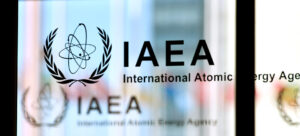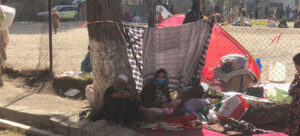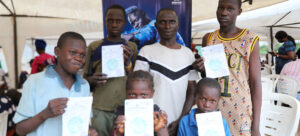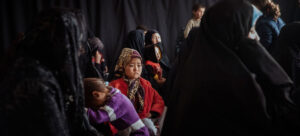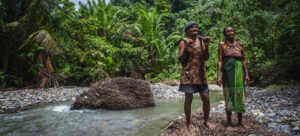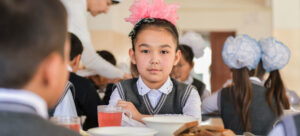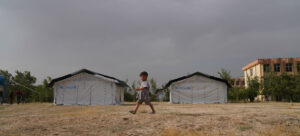Speaking to UN News in July 2020, Andrew Young recounted his memories of Mr. Bunche, and explained why his influence continues to be felt, at the UN and in the broader fight against racism.
“Ralph Bunche was one of my childhood heroes. I thought of him as my father, because he has already done everything that I was trying to do, 40 years earlier!
Ralph left Howard University, [one of the foremost historically black universities] in 1939 to take a tour of Africa, developing military intelligence on the continent, for the US Second World War effort.
He went by boat to Morocco, Tunisia and Egypt, then through the Suez Canal to Kenya and South Africa, and he was the only person in the US army who really knew anything about the continent, in terms of military intelligence. Much of the UN doctrines on decolonization, peacekeeping, immigration, refugees and asylum came, I believe, from the studies he made during this period.
‘A US citizen, marching for freedom’
During the civil rights era, and even though he was a senior UN official, and not directly involved with Martin Luther King, he didn’t hesitate to advise and encourage Dr. King.
He even came to march with Dr. King in Selma [scene of the 1965 civil rights marches by non-violent activists, demonstrating the repression of their constitutional right to vote], showing that, as well as being an internationally renowned scholar, he retained a direct connection with the black community and the civil rights leadership: he didn’t come as an official of the United Nations, he wanted to be there simply as a US citizen, marching for freedom in his country.
When I met Mr. Bunche at the UN [in 1967, accompanying Martin Luther King] he said that he didn’t want to criticize Dr. King for his stance on Viet Nam, which he agreed with [Martin Luther King was vocal in opposing America’s involvement in the Viet Nam war], but he said that he hated to see Dr. King involved with both the civil rights movement and the peace movement at the same time, because it left him too exposed.
Dr. King replied that he didn’t want to be involved but he had no choice: “I don’t want be involved with this, but I can’t run form it. I can’t segregate my conscience. I can’t be for non-violence between races and classes in the world and endorse violence in international conflict”.
That meeting took place one year to the day before Dr. King was assassinated. It’s almost as if Mr. Bunche was predicting that the variety of roles that Dr. King was playing was unwise, and he was advising him to slow down a bit and last a little longer.
Master of the back channels
Ralph Bunche was always very rational and logical, and he resisted all kinds of emotional and anger politics that could exist between races, or between the developed and less developed worlds.
He was a master mediator, with a cold, logical, and analytical mind, which he applied to volatile, emotional subjects. He didn’t believe in secrecy, but he believed that diplomacy depends on a certain level of private confidence: there’s a back-channel game constantly going on at the UN.
This article is one of a series of multimedia features published as part of the commemorations surrounding the twentieth anniversary of the UN’s Durban Declaration, considered to be a milestone in the global fight against racism.
Ralph Bunche, a man of peace
- The achievements of Ralph Bunche are hard to overstate. At a time of pronounced racial inequality in the United States, Mr. Bunche became the first African American to gain a doctorate from an American university in the 1930s. After serving his country in the Second World War, in military intelligence, he worked on two of the UN’s foundational documents: the United Nations Charter, and the Universal Declaration of Human Rights.
- Mr. Bunche went on to become Under-Secretary-General for the UN, supporting the efforts of colonised peoples to achieve freedom and independence in the Trusteeship Council, and mediating the 1949 armistice between Israel and neighbouring Arab countries, for which he was awarded the Nobel Peace Prize in 1950.
- Mr. Bunche was the architect and director of subsequent United Nations peacekeeping operations, and he personally led the largest and most challenging of these, the 1960 UN operation in the Congo.
- Although Mr. Bunche had left the UN by the time Andrew Young became the Organization’s first African American US Ambassador in 1977, the two men had met previously, during the 1960s. Mr. Young accompanied Dr. Martin Luther King on his visit to UN Headquarters in 1967, at the height of the US civil rights movement.
- A more detailed description of Mr. Bunche’s UN achievements, and his personal qualities, read this article by another founding member of the UN Secretariat, Brian Urquhart.

